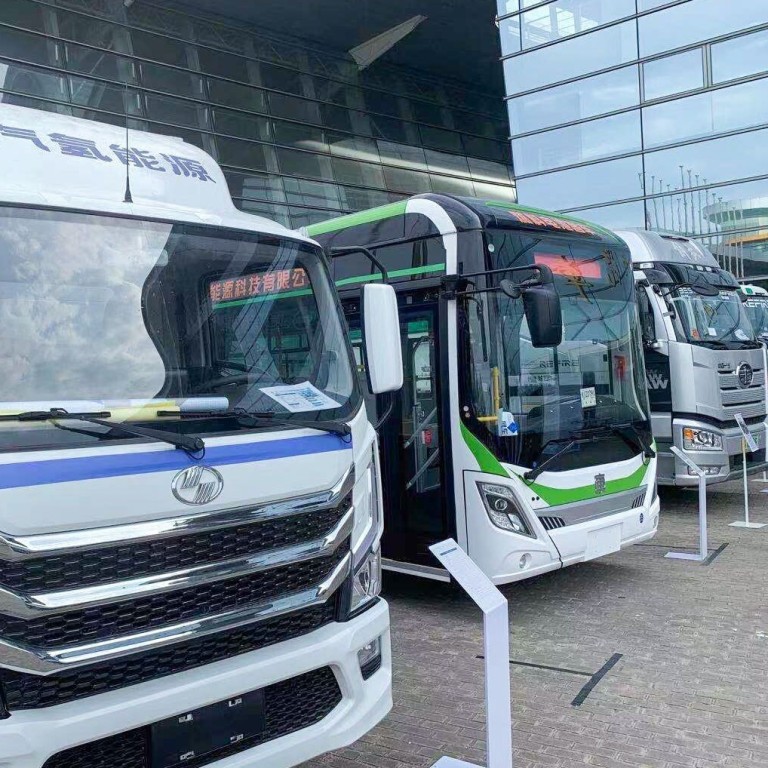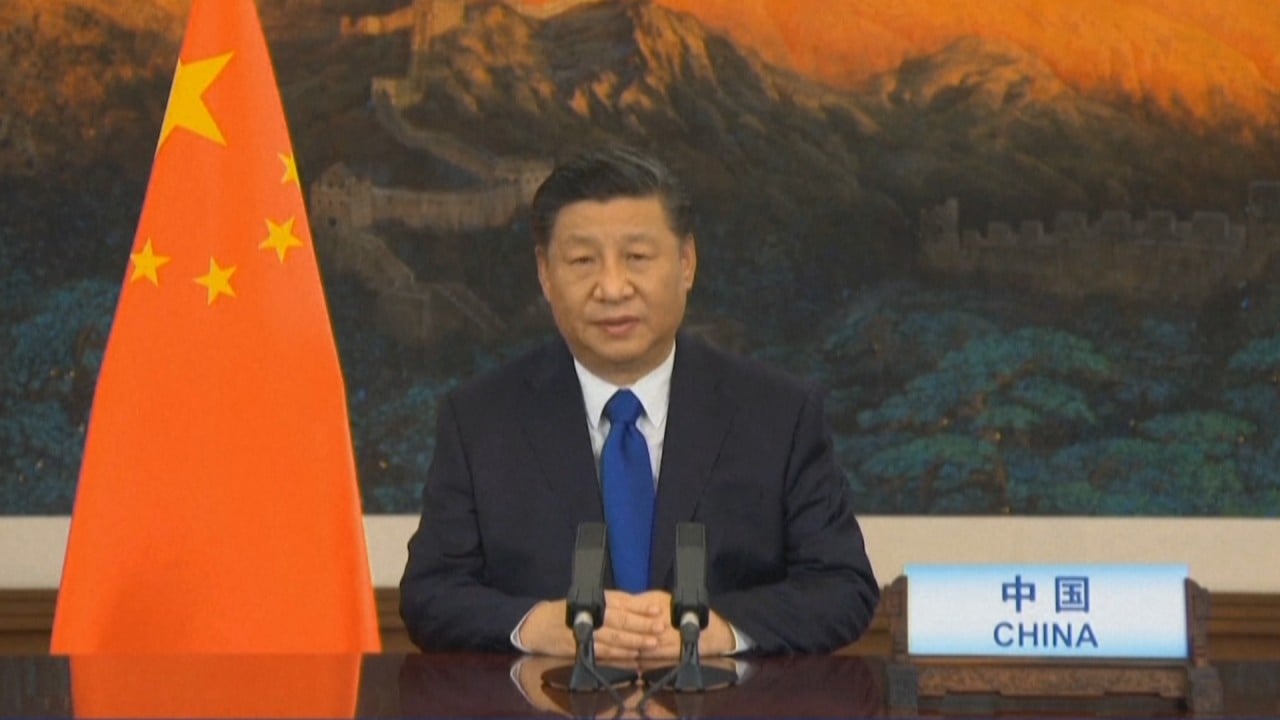
China’s carbon neutral goal: Shanghai aims to have 10,000 hydrogen-powered cars on roads in 2023
- City planning nine scenarios to boost the use of hydrogen-powered vehicles, official says
- Shanghai had 1,200 such cars on its roads at the end of last year
Shanghai expects to have 10,000 hydrogen-powered cars on its roads in 2023, and has pledged to invest heavily in alternative energy sources.
The city, China’s financial and commercial capital, was also planning to build 100 hydrogen refuelling stations by the same year, said Chen Kele, a deputy division chief at the Shanghai Commission of Economy and Information Technology.
“We also plan to create nine scenarios to boost the use of hydrogen-powered vehicles,” he told the International Hydrogen Fuel Cell Vehicle Congress in Shanghai on Wednesday. The industry’s output would hit 100 billion yuan (US$15.7 billion) by 2023, he added.
The city’s 2023 target translates into a more than eightfold jump from the 1,200 such cars it reported on its roads at the end of last year. It also only had nine refuelling stations. One of the refuelling stations to be built in the city’s southwestern Jinshan district will be the world’s largest.

01:24
China to reduce carbon emissions by over 65 per cent, Xi Jinping says
Moreover, almost all of the 7,200 such vehicles on China’s roads as of July last year were retrofitted commercial trucks, according to new energy consultancy qingyunlian.com.
“The next four years will be a development stage for hydrogen fuel cell cars in China, buoyed by the government’s resolution to create a big market,” said Wei Chang, the chief executive of National Institute of Clean and Low-carbon Energy at the China Energy Group. “The industry will grow fast between 2025 and 2035.”
China is the world’s largest electric vehicle EV market with electric battery-powered cars expected to surge by about sixfold to 6.6 million units in 2025, according to a forecast by UBS.

